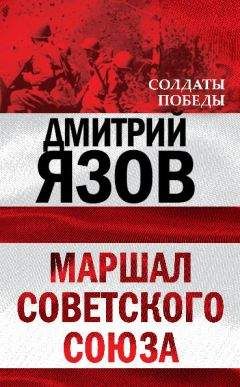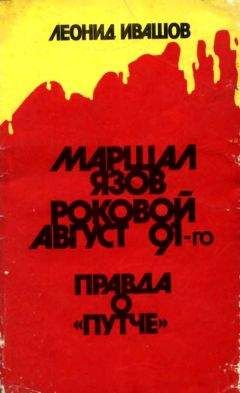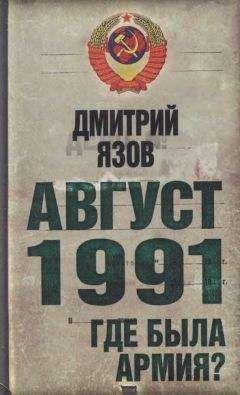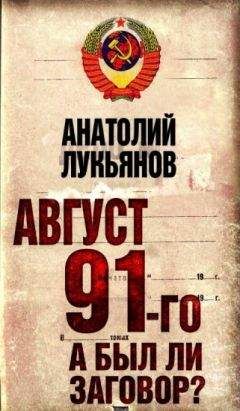Сергей Кузьмин - Скрытый Тибет. История независимости и оккупации
[Panchen Lama X] The Panchen Lama's Last Speech: Full Text. — http://www.columbia.edu/ itc/ealac/barnett/pdfs/link5-Panchenspeech.pdf. 16.05.2009.
Parenti M. Friendly feudalism: the Tibetan myth. — http://www.swans.com/library/art9/mpar-en01.html; сокращенный и неточный русский перевод: Паренти М. Дружественный феодализм: миф о Тибете. — http://left.ru/2008/6/parentil75.phtml.
«Patriotic Re-education» campaign results in one death and 25 arrests. — http://www.tchrd. org/publications/hr_updates/2000/ hr200006.html#reeducation. 14.12.2008.
Pelliot P. 1912. Lorigine du nom de «Chine». — T'uong Pao, v. 18.
[People's Republic of China State Statistical Bureau. Registers the result about the first national census the bulletin on November 1, 1954 (на кит. яз.)]. — http://www.stats.gov.cn/tjgb/rkpcgb/qgrkpcgb/t20020404_16767.htm. 26.01.2009.
Phuntsok Tashi Taklha. 1992. Historical Sino-Tibetan relations, 1949–1951 and the Seventeen-point Agreement. — http://www.columbia.edu/ cu/lweb/indiv/area/tibet-potomac/historical/taklha.html. 27.01.2009.
Pirie F. Segmentation within the state: the reconfiguration of Tibetan tribes in Chinese reform period. — Nomads 9_1_11_04_05. — www.case.edu/affil/tibet/tibetanNomads/documents/NPpaper.pdf. 27.09.2008.
Political veteran speaks… 1998. — Human rights update: TCHRD, v. 3, no. 11.
Potala palace desecrated. 2001. — Tibetan Bull., March — June.
Powers J. 2004. History as Propaganda: Tibetan Exiles Versus the People's Republic of China. New York: Oxford Univ. Press.
Prachanda defends Chinese crackdown on Tibetans. — http://www.hindu.com/thehindu/holnus/003200803232124.htm. 15.05.2009.
Prisoners of Tibet: Special Report. 2006. TCHRD.
Promises and lies: «The 17-point Agreement». The full story as revealed by the Tibetans and Chinese who were involved. 2001. — Tibetan Bull., March — June.
Prostitution abounds in Lhasa. 1995. — Tibetan Bull., May — June.
Protection and development of Tibetan culture (2008). Information Office of the State Council of the People's Republic of China September 2008, Beijing. — http://english.gov.cn/official/2008–10/16/content_1123105.htm. 16.10.2008.
Puntshok J. 1998. Testimony of political prisoner. — Tibetan Envoy, v. 3.
Qin Yongzhang. A secret history of Japan coveting Tibet during the anti-Japanese aggression war. — China Tibetology, no. 6. — http://www.tibet.en/english/zt/TibetologyMagazine/20031200691161216.htm. 03.11.2008
Questions pertaining to Tibet, 1969–1972. — http://www.state.gov/documents/organization/70146.pdf. 03.01.2008.
Ran Ch. 1991. The origin and truth of the «Independence of Tibet». Beijing: New Star.
Re-education in Kan Lho. 1996. — Human Rights Update: TCHRD, v. 2, no. 23.
Religious persecution through «patriotic re-education». — http://www.tibet.com/Humanrights/HumanRights97/hr97-l.html. 03.11.2008.
Rhoads E.J.M. 2001. Manchu and Han. Ethnic Relations and Political Power in Late Qing and Early Republican China 1861–1928. Seattle — London: Univ. of Washington Press.
Ribhur Tulku. 1988. Search for Jowo Mikyoe Dorjee. Dharamsala: Office for Inform. & Intern.
Relations, Central Tibetan Secretariat. Roy A. 2008. Prachanda, the Unknown Revolutionary. Katmandu: Mandala Book Point.
Samsara, a Tibetan human rights archive. — personal testimony. — http://www.subliminal.org/tibet/testimony. 27.07.2008.
Samsara: personal testimony: Statement No. 11. — http://www.subliminal.org/tibet/testimony/ icj60-stmtll.html. 03.11.2008.
Sautman B. 2008. «Demographic annihilation» and Tibet. — В кн.: Contemporary Tibet: Politics, Development and Society in a Disputed Region (eds. B. Sautman, J.T. Dreyer). New Delhi.
Sautman B. How repressive is the Chinese Government in Tibet? — http://www.international. ucla.edu/article.asp?parentid=2732. 26.01.2009.
Sautman В., Dreyer J.T. 2005. The Tibet question in contemporary perspective. — В кн.: Contemporary Tibet: Politics, Development, and Society in a Disputed Region. New York.
Schrei J.M. A lie repeated — the far left's flawed history of Tibet. — http://www.studentsforafreetibet.org/article.php?id=425. 15.03.2009.
[Secret: CTC releases documents from Canada's Tibet file]. — http://tibet.ca/_media/PDF/secret_canada_tibet_flle.pdf. 30.01.2009. Seres. — http://en.wikipedia.org/wiki/Seres. 04.01.2009.
Severe religious restrictions in Nyemo County. — http://www.tchrd.org/publications/hr_updates/2000/hr200005.html#restrictions. 14.12.2008.
Shakya Ts. 1997. Historical introduction. — In: Leaders of Tibet: a Directory. London,Tibet Information Network. —http://www.columbia.edu/ itc/ealac/barnett/pdfs/link6-shakyaintro.pdf. 25.01.2009.
Shakya Ts. 1999. The Dragon in the Land of Snows. A History of Modern Tibet Since 1947. London: Pimlico.
Shakya Ts. 2002. Blood in the snows. Reply to Wang Lixiong. — New Left Review, v. 15, May-June. — http://www.newleftreview.org/?view=2388; http://www.tibetwrites.org/7Blood-inthe-Snows. 04.03.2009.
Shakya Ts. 2003. The genesis of the Sino-Tibetan Agreement of 1951. — В кн.: The History of Tibet (ed. A. McKay), v. 3. London — New York.
Shakya Ts. 2005. The prisoner. — New Left Review 34. — http://newleftreview.org/A2576. 25.01.2009.
Shakya Ts. Tibet and China: the past in the present. — http://www.phayul.eom/news/article.aspx?c=4&t=l&id=24245&article=Tibet+and+China%3a+the+past+in+the+present++By+Tsering+Shakya. 21.03.2009.
Shakya Ts. Tibetan questions. — http://www.newleftreview.org/?page= article&view= 2720;http://newleftreview.org/?getpdf=NLR28501&pdflang=en. 04.11.2008)
Shaumian T. 2000. Tibet: the Great Game and Tsarist Russia. New Delhi: Oxford Univ. Press.
Smith W. Congressional panel to probe Chinese theft of Tibetan treasures. — http://www.rfa.org/english/commentaries/ cambodia_cullumoped04042008160706.html/tibet_smith-04042008160846.html. 20.09.2005.
Smith W.W. 1994. The nationalities policy of the Chinese Communist Party and the Socialist transformation of Tibet. — В кн.: Resistance and Reform in Tibet (eds. R. Barnett, Sh. Akiner). Bloomington.
Smith W.W. 1996. Tibetan Nation. A History of Tibetan Nationalism and Sino-Tibetan Relations. Boulder: Westview.
Smith W.W. 2008. China's Tibet? Autonomy or Assimilation. Lahman etc.: Rowman & Littlefield.
Sonam T. 2007. A Cold War in Shangri La — the CIA in Tibet. — http://www.tibetwrites. org/?A-Cold-War-in-Shangri-La-The-CIA. 17.02.2009.
Song L. 2007. Reflections on the 17-point Agreement of 1951. — В кн.: Facts About the 17-point «Agreement» Between Tibet and China. Dharamsala.
Source list and detailed death tolls for the twentieth century hemoclysm. — http://users.erols. com/mwhite28/warstatl.htm. 26.01.2009.
Sperling E. 2003. The Chinese venture in K'am, 1904–11, and the role of Chao Erh-Feng. — В кн.: The History of Tibet (ed. A. McKay), v. 3. London — New York. Sperling E. 2004. The Tibet — China conflict: history and polemics. — Policy Studies, v. 7 (Washington, East — West Center). — http://www.eastwestcenterwashington.org/publications/publications.htm. 15.12.2008.
Ssanang Ssetsen. 1829. Geschichte der Ost-Mongolen und Ihres Fuerstenhauses. St. Petersburg. Strangers in their own country: Chinese population transfer in Tibet and its impacts (a report by Tibetan Youth Congress). 1997. Dharamsala.
Strong A.-L. 1959. When Serfs Stood Up in Tibet. Peiking: New World Press. — http://www.marx.org/reference/archive/strong-anna-louise/1959/tibet/index.htm. 21.07.2009.
Struggling for influence in Nepal. — TibetlnfoNet, 31.10.2008. Taklha N.L. 2001. Born in Lhasa. Ithaca, NY: Snow Lions Publ.
Tales on terror: torture in Tibet (1999). — http://www.tchrd.org/publications/topical_reports/tales_of_terror-torture-1999//08.11.2008.
Tenpa Soepa. 2008. 20 Years of My Life in China's Death Camp. Bloomington (India): Author House.
The Eight White Ordon, the offering ceremonies of Genghis Khan and the Mausoleum of Genghis Khan. — http://members.tripod.com/Mongolian_Page/white.txt. 08.10.2008.
The lost kingdom of Guge. — http://www.himmies.com/hl/tales_guge.html. 09.06.2009.
The Mongols and Tibet. A Historical Assessment of Relations Between the Mongol Empire and Tibet. 2009. Dharamsala: DIIR.
The myth of Tibet genocide. — http://thenewvoice.wordpress.com/2008/04/17/the-myth-of-tibet-genocide/. 26.01.2009.
The New Times представляет три точки зрения на ситуацию в Тибете: глазами правозащитника, журналиста и ученого-китаиста. №58 — от 24 Марта 2008. — http://lightbreeze.beon.ru/2181–230-the-new-times-tri-tochki-zrenija-na-situaciju-v-tibete.zhtml. 07.06.2009.
The Question of Tibet and the Rule of Law. 1959. Geneva: International Commission of Jurists. The rebel Dalai Lama. — http://www.friendsoftibet.org/main/songs.html. 17.02.2009.
The Sino-Tibetan etymological dictionary and thesaurus. — http://stedt.berkeley.edu/html/STfamily.html#TBlg. 17.02.2009.
The status of Tibetan women in Tibet (1995–2000). — http://www.tibetanwomen.org/publications/books/status_of_women_in_tibet-un-2000.html. 28.04.2009.
Thinley P. 1996. The tragedy and courage of the late Panchen Lama. — Tibetan Bull., Jan. — Feb.
Tiang J. The Administrative System in Tibet during the Tang and Yuan Dynasties. — China Tibetology, no. 1. — http://www.tibet.cn/english/zt/TibetologyMagazine/2003120031216142213.htm. 03.11.2008.
Tibet 2002 — a Yearbook: Reports from Tibet. London: Tibet Inform. Network.
Tibet and Manchu. An Assessment of Tibet-Manchu Relations in Five Phases of Historical Development. 2008. Dharamsala: DIIR.
Tibet and the Chinese People's Republic. A Report of the International Commission of Jurists by Its Legal Inquiry Committee on Tibet. 1960. Geneva: International Commission of Jurists.
Tibet riots orchestrated? — http://www.watbowon.org/Joomlal01 l/index.php?option=com_content&task=view&id=229&Itemid=85. 29.03.2008.
Tibet: the gap between fact and fabrication: III. Developments: The economic and social development. — http://www.tibetanyouthcongress.org/development_part3.htm. 14.12. 2008.
Tibet to provide housing for 52,000 farmers, herders in 2008. — http://english.peopledaily.com.cn/90001/90776/6340343.html. 28.07.2008.
Tibet Under Chinese Communist Rule. A Compilation of Refuge Statements, 1958–1975. 1976. Dharamsala: Information and Publicity Office of H.H. the Dalai Lama.
Tibet: 1950–1967. 1968. Hong Kong: Union Research Inst.
Tibet: a Human Development and Environment Report. 2007. Dharamsala: Central Tibetan Administration.
Tibetan blasts 'demographic aggression'. — www.phayul.com.
Tibetan exile monasteries. — http://www.khawakarpo.org/tibet_monasteries.htm. 20.09.2008.
Tibetan Plateau under the mercy of climate change and modernization. 2009. — Tibetan Bull., v. 13, no. 1.
Tibetan religious leaders not to accept Chinese imposed Panchen Lama. 1995. — Tibetan Bull., September — December.
Tibetan Youth Congress. — http://www.tibetanyouthcongress.org. 27.07.2008.
Torture in Tibet. A Report Submitted to the United Nation Committee Against Torture. 2000. Dharamsala.
Trikamdas P. 4 June 1959; 5 June 1959. Tibet — Summary of a Report on Tibet: Submitted to the International Commission of Jurists by Shri Purshottam Trikamdas, Senior Advocate, Supreme Court of India. — http://www.icj.org/news.php3?id_article=3415&lang=en&print=true. 04.05.2009.
Tsering B.K. 1985. Religion in Tibet today. — Tibetan Bull., v. 16, no. 1. Uprising in Tibet 2008. Documentation of Protests in Tibet. Dharamsala: TCHRD.
Van Walt van Praag M.C. 1987. The Status of Tibet: History, Rights, and Prospects in International Law. Boulder, Colorado: Westview Press.
Van Walt van Praag M. 2007. The relevance of 17-point Agreement today. — Facts About the 17-point «Agreement» Between Tibet and China. Dharamsala.
Vembu V 2007. Tibet wasn't ours, says Chinese scholar. — http://www.dnaindia.com/report.asp?newsid=1081523&pageid=0. 22.12.2008.
Victim of Chinese torture in Tibet. — http://www.subliminal.org/tibet/testimony/Choedrak Congress.html. 03.11.2008.
Wade G. 1999. The polity of Yelang and the origins of the name «China». — Sino-Platonic Papers, no. 118, May. — http://www.sino-platonic.org/complete/sppl88_yelang_china. pdf.
Wang Jiawei, Nimajianzan, Nyima Gyaincain. 1997. The Historical Status of China's Tibet. China Intercontinental Press.
Wiley A.S. 2004. An Ecology of High-Altitude Infancy. Cambridge: Cambridge Univ. Press.
Woeser Ts. A record of the Tibetan unrest: March 10 — March 25. — http://www.phayul.com/news/article.aspx?id=20170&article=A+Record+of+the+Tibe tan+Unrest%3a+March+10%e2%80%94March+25#. 01.11.2008. [Woeser] Diagnosing the Current Situation in Tibet. Interview with the Tibetan author
Woeser. 1 May 2008. — http://www.tibetwrites.org/7Diagnosing-the-Current-Situation. 21.02.2009.
Woeser (Wei Se). 2006. Sha jie. Sishi nian de jiyi jinqu. Jingtou xia de Xizang wenhua. Di yi ci gongkai (Forbidden memory. Tibet during the Cultural Revolution), Taipei: Dakuai Wenhua, 296 с
Worldwide Tibet Movement. — http://www.tibet.net/en/diir/wwtm/index.html. 07.06.2009.
Wren C.S. 1983. Life and death in Tibet: the past clings fiercely. — New York Times, 24.05.1983.
Wright A.R. 1904. Tibetan drum and trumpet. — Folklore, v. 15, no. 3 (Sep.: 29, 1904).
Wu Т., Wang X., Wei C, Cheng H., Wang X., Li Y, Dong G., Zhao H., Young P., Li G., Wang Z. Hemoglobin levels in Qinghai-Tibet: different effects of gender for Tibetans vs. Hans.. — J. Appl. Physiol., v. 98.
Wu Keliang, Wu Changxin. Documentation and mining of yak culture to promote a sustainable yak husbandry. — В кн.: Proceedings of the International Congress on Yak, Chengdu, Sichuan, P.R. China 2004. — http://www.ivis.org/proceedings/yaks/2004/session7/Keliang.pdf.
Yan Hao. 2000. Tibetan population in China: myths and facts re-examined. — Asian Ethnicity, v. 1, no. 1. — http://www.case.edu/affil/tibet/booksAndPapers/tibetan.population.in. china.pdf. 25.01.2009.
Yeh E.T. 2003. Tibetan range wars: spatial politics and authority of the grasslands of Amdo. — Development and Change, v. 34, no. 3.
Zhao Suisheng. 2004. Nation-state by Construction: Dynamics of Modern Chinese Nationalism. Stanford: Stanford Univ. Press
Summary
Hidden Tibet. History of Independence and Occupation. Sergius L. Kuzmin. 2010. St. Petersburg, Narthang. Tibet is a land of mysteries. They are not only in religion and occultism: its history remains hidden in a large part. This book disproves some erroneous views on history and religion of the Tibetans. Tibet has never been a part of any other state. At the time when China was an inseparable part of Mongolian Yuan Empire and Manchu Qing Empire, Tibet was a separate country but not a part of these empires. It was not a part of Chinese Tang and Ming empires. Statements that Tibet was a part of neighboring empires is related to ancient Chinese conception of the emperor's global power. Its principles are being wrongfully transferred onto a nation state model in post-revolution China. Inclusion of Tibet into the People's Republic of China was not legitimate. Tibet is an occupied country. The book traces history of the Tibetan statehood from ancient times to our days, describes life of the Tibetans at the times of Feudalism and Socialism, coercive inclusion of Tibet into People's Republic of China, suppression of national liberation movement, destruction of civilization of the Tibetans, Cultural Revolution and subsequent reforms. Many pictures and data concerning these events are published for the first time.




